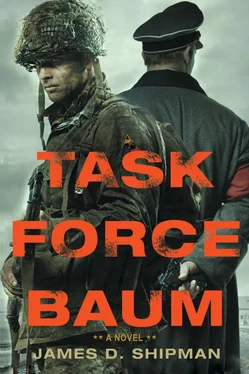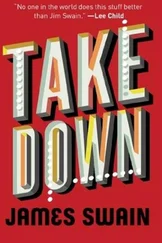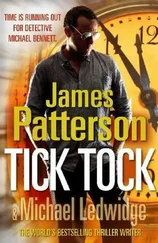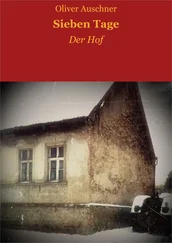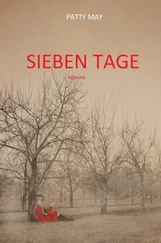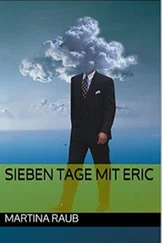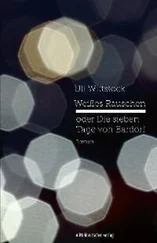Hall didn’t know what to say, so he kept his mouth shut. How would they get anywhere if they jumped back like a rabbit stung by a bee every time they encountered the least resistance? If only he were in charge of this operation, he’d handle things differently. He would’ve left every last one of those POWs back in the camp and got the hell out of there at full speed. He’d have pushed right through the hills and right on to the bridge before the Germans knew what the hell was happening. The POWs were better off back at the Oflag. Hell, the war was practically over; it would be, at most a few days. They’d be safe in the camp until the real army got there. Instead, they were out here slowing everything down like a bunch of sheep herded by Nutto and Baum, the dumbest sheepdogs on the planet.
A few moments later, he heard the engines of the Shermans firing up again as the column lurched into reverse, making its way slowly back down the road until they found a flat patch where they could awkwardly maneuver the task force around and start the slog northeast, back where they’d come from.
Another half hour passed before they found a road that turned due west. They took this path, another narrow gravel roadway, and rumbled along as quickly as they could manage. Hall kept checking his watch, cursing to himself as they meandered through trees and countryside toward Höllrich. Finally, in the distance, he could make out another road passing perpendicular to their own. He hoped this was a larger arterial that would allow them to speed up again. As they drew closer, he noted something strange about the roadway. Shadows flickered behind the branches of the bushes and trees. He tried to understand what he was looking at, and, with horror, he realized the danger they were in.
“Christ!” he screamed.
“What is it now, Hall?” asked Stiller with annoyance in his voice.
“Look out there!” Hall pointed in the distance.
Stiller peered out and swore. Even as the major saw what Hall was looking at, the lead Sherman erupted, firing a shell at the moving shadows. They’d ran right into an enemy armored formation, passing rapidly in the night. Hall lifted his Thompson even as the first enemy fire rained down on them.
Between Bonnland and Höllrich
March 28, 1945, 0200 hours
Koehl cranked his neck around and saw with horror the American column knifing up through the middle of his convoy. Even as he watched, the lead Sherman fired its 75mm cannon. There was an explosion behind him. He turned fully around in the turret and saw one of his Ferdinands disappearing in a ball of flame. The armored vehicle rolled forward for a few yards and then stopped, directly at the bridge of the T where the two roads converged. He watched in despair as the behemoth burned, hoping to see someone escape from within, praying for a miracle. But long moments passed with nothing. The flames licked away, erupting out of the top of the turret and through the machine-gun slits. Nothing could be alive inside.
The other Ferdinands were maneuvering to fire. Unfortunately, the armored anti-tank vehicles were not designed with a wide-ranging field of fire. The two in front of the burning husk, including Koehl’s, had no chance to turn in the confining space near the road; only the vehicles behind the ruined anti-tank unit could come into play now.
Koehl wanted to scream in frustration. The chances that the Americans would converge at exactly this point, in both time and location, were virtually zero. Was he cursed? His destruction seemed ordained as if from God, and he shuddered at that moment, wondering if his rage, his betrayal of orders, and his loss of control were being punished from above. Colonel Hoepple’s warnings lashed at him. He had told Koehl he was being reckless, that he was gambling with his men’s lives. The Hauptmann had ignored this. He’d been so sure of himself, based on his past, and perhaps more so because he wanted this vengeance more than anything he’d ever desired. Now his commander’s predictions had come horribly true. He had caused the death of his men through his careless actions or through bad luck. He wasn’t sure which, but the result was the same. He’d already lost one of his Ferdinands in the attack, and he was out of position, with limited room for maneuver. He knew there was every chance he was about to be annihilated.
Then something inexplicable happened. For some reason that defied rationality and reality, the Americans failed to press the attack. The Sherman ground to a halt and started to back away. The enemy tanks kept up a steady barrage, but the shells fell wide of their marks. His own vehicles returned the fire, but no further hits were made on either side. Within a minute or so, the Americans disappeared, backing into a copse of trees a hundred yards or so away from the T of the roads.
Koehl’s emotions rapidly changed from amazement to a renewed determination to press his attack. The Americans had miraculously appeared just where they could destroy him, and just as unbelievably, they had fled. He didn’t have time to consider this further but turned to the reality that he knew where the Americans were . He could destroy them . He immediately ordered his remaining column to reform and pursue the enemy. The difficulty now was maneuvering his column around the burning Ferdinand. Maddeningly, the fiery husk had come to rest in exactly the wrong spot, blocking the apex of the T.
This would not be a problem except that the road at this point was bounded by deep ditches on both sides. Koehl was not sure he could successfully navigate the embankments without lodging yet another of his vehicles into a ditch and reducing his already critically low forces even further. He attempted to direct the first Ferdinand behind the burning armored vehicle to squeeze between the flaming husk and the ditch.
He did this on foot but had tremendous difficulty in the darkness, and he quickly realized, as the Ferdinand approached the gap, that it would never make it through without rumbling into the ditch itself. He looked at the other side of the road, hoping there was more room to navigate, but the burning vehicle was equidistant, as if fate had placed it there to block all attempts to reach his foe.
He considered pushing it out of the way, but it was so completely engulfed in flame he feared another explosion might damage the vehicle attempting to move the Ferdinand.
Precious minutes ticked by. In anguish, Koehl realized it was fruitless to pursue the Americans directly. However, there was room for the rear vehicles to move to the right of the burned-out Ferdinand and continue in the direction he was previously headed. Examining the problem for precious minutes, he realized this was the only option available to him. Better to be moving in the direction of the Americans and hope to find them at another location farther west. Again, he thanked fate that he had previously trained so much in this area. He was familiar with the local geography and the network of roads. The thoroughfare he was currently on continued west for a few more miles, before eventually meeting up with Höllrich. The city was critical as it sat astride Highway 27, the main arterial road north and south along the Main. It appeared the Americans were attempting to circumvent their original route, just as Koehl suspected they would. If they were also attempting to make it back to the original bridge at Burgsinn, then Höllrich would be the perfect place to intercept them. Koehl thought back to the route the Americans had taken in retreat. About a third of the way to Bonnland, there was a narrow gravel road cutting off to the right. This road eventually led to Höllrich as well, but it was winding, and the uneven surface would restrict the Americans’ speed. If the enemy task force took this roadway, he would be able to make up time and arrive in their path well ahead of them. If not, well…
Читать дальше
